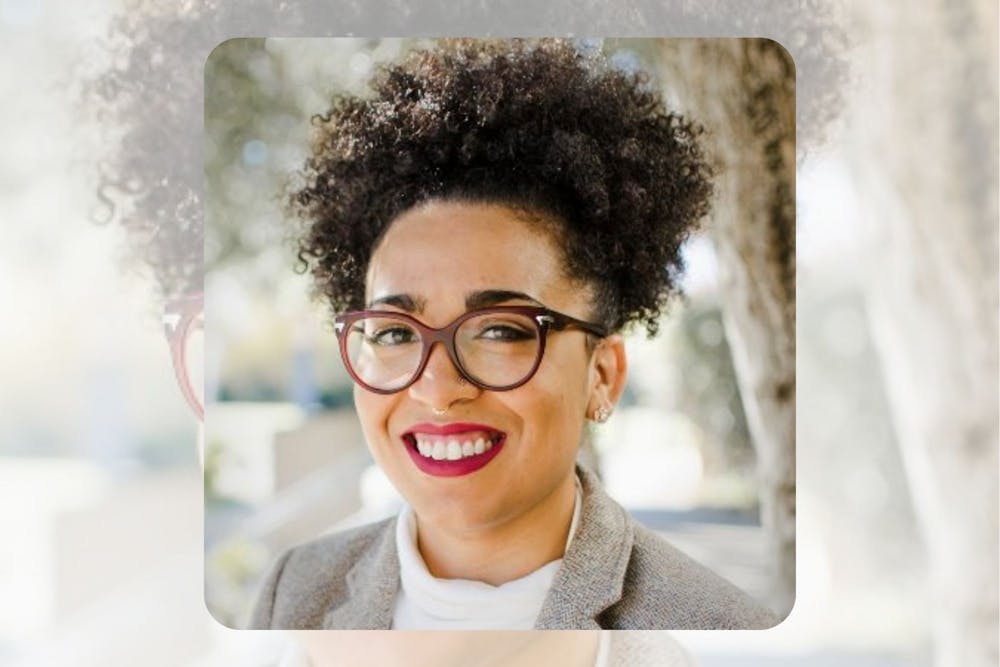Penn alumna Krista L. Cortes has been appointed director of La Casa Latina, the main hub for Latinx students, with the goal to make space for Afro-Latinx students within the greater Latinx community.
Since her appointment in late January, Cortes said her chief objectives as director are to implement programming that connects Penn's Latinx community with the greater Philadelphia Latinx community, and also to turn the cultural center into a Black-affirming space so Afro-Latinx students feel welcomed as well.
Cortes, who earned two graduate degrees from Penn in Language and Literacy and in Teacher Education in 2011 and 2013, succeeds Johnny Irizarry, who retired in April 2020 after serving as director of La Casa Latina for 10 years.
Identifying as an Afro-Puerto Rican, Cortes said she believes that Blackness is often ignored within Latinx spaces.
“What does it mean to be Afro-Latinx and to look at your Blackness as an asset? As something that adds value to your identity, rather than being something you try to hide or gloss over because you’re embarrassed, or you think people will look down upon you,” Cortes said.
Citing her Ph.D. in Education from the University of California, Berkeley, Cortes said she hopes to integrate her research on Afro-Puerto Rican mothers into the La Casa Latina community, particularly how AfroPuerto Rican mothers create learning environments for their children that center Blackness.
Cortes said that the Latinx community is often unified through cultural aspects like food and language, yet the community overlooks those who don't practice their culture the same way, such as those who do not speak Spanish.
At Penn, Cortes said she wants to celebrate the multiplicity of voices within the Latinx and Afro-Latinx communities.
RELATED:
Penn will not commit to matching PSG’s $250,000 contribution to Black student groups
Penn Law students publish report detailing experience of Black women in the legal field
Cortes has begun centering this diversity through the Afro-Latinx voices program series, which is running throughout February in honor of Black History Month, as La Casa Latina continues to operate entirely virtually this semester. The series, which is taking place virtually every Wednesday of February, is covering topics on what it means to be Afro-Latinx, Black joy, and Afro-Latinx musical traditions.
Cortes said she wants to bring in scholars who identify as Afro-Latinx to share personal and academic experiences with students, and who can tell their own stories from within the community — as opposed to from an outsider’s point of view.
“We need to remind people that Black people exist in Latin America and the Caribbean,” guest speaker Nicole Ramsey, a Ph.D. Candidate in the Department of African American & African Diaspora Studies at UC Berkeley, said during the first of these program series on Feb. 2, which discussed the meaning and importance of Afro-Latinidad culture.
Daniel Morales Armstrong, a joint Ph.D. student in Africana Studies and History at Penn, also spoke with Ramsey about the Afro-Latinx identity, emphasizing the existing diversity within the community and the need to reaffirm this identity within it.
“There are multiple Latinidades. There is no one way to be Black and Latinx. There are infinite textures in Blackness,” Morales Armstrong said during the discussion.
Cortes emphasized that Black History Month is the only time people talk about Blackness in the Latinx community, adding that she hopes to continue this conversation about diversity in all of La Casa Latina’s future programming.
Cortes also envisions La Casa Latina as a space for all students who are still figuring out their identity.
Growing up, Cortes said her identity was never set in stone — as she was raised to be proud of her Puerto Rican heritage, but realized that her Blackness was never emphasized at home. During her time as an undergraduate at Georgetown University, she said she began grappling with questions about her racial identity that went beyond simply identifying as either Black or Latinx.
“I gravitated toward the Black community because that’s where I felt comfortable. That’s where I saw myself. I didn’t see myself in the Latinx community,” Cortes said.
Cortes said that as a graduate student at Penn, and especially as a graduate associate in Ware College House, she was able to find a supportive community that gave her the space to explore her identity.
“It wasn’t until I got to Philadelphia, and Penn, that I really felt like I came into a stronger sense of who I was as an Afro-Latina,” Cortes said. “As an Afro-Puerto Rican person, I finally felt like I could claim both identities.”
While at Penn, Cortes also served as a program coordinator for the Ase Academy within Makuu: The Black Cultural Center, which connects Penn students with Black middle and high school students in West Philadelphia. In efforts to further her mission of integrating the Penn community with West Philadelphia, she said she hopes to run a similar program in La Casa Latina that connects students with the city's Latinx population.
Cortes emphasized that despite the University's virtual semester, the online space is still available to help students feel welcome as they explore their identity.
“I want to make sure La Casa Latina is a place for that person who is still figuring out who they are," Cortes said. "You don’t need to know who you already are to come to La Casa and feel welcome. And you’re allowed to change who you are. Identity is fluid."









